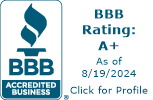May 4th, 2009 – This time of year many of Colorado’s college students will be graduating and coming off of their college or university’s health insurance programs. With a tight job market it pays to consider near term health insurance options, as getting onto an employer’s health insurance plan right away is far from a forgone conclusion.
If the college graduate is unmarried, under age 25 and financially dependent on a parent then the recent grad may be eligible to enroll in a parent’s employer sponsored group plan, if the parent’s employer is based in Colorado. However, the parent will want to check with their company’s HR department to see if and when their child could open enroll into the parent’s plan and how much that will cost the parent. For a recent college grad with significant health conditions getting onto a parent’s group health plan may be an option worthy of serious consideration.
Another plan option will be for the recent grad to see if they can qualify for an individual health insurance plan. This is typically the lowest cost option, but qualification will depend upon the health of the recent graduate.
It is best to check with a reputable local health insurance broker to see if they will medically qualify for individual health insurance and the broker can also help determine what carrier will have the best value on a suitable plan that meets coverage goals and budgetary requirements. There is no extra cost for using a broker and good brokers will have your best interests at heart. Be sure to advise the broker if maternity benefits will be needed, as many popular individual health insurance plans do not provide any standard maternity benefits.
In addition to lower cost, another advantage of individual health insurance plans is providing coverage in the event that the recent grad is offered a job by a smaller company that doesn’t offer health insurance coverage or if the grad opt’s to pursue self employment The economy is forcing many recent grads to take interim jobs that may not be their dream job, but that will provide much needed paychecks in the interim
Finally, there are also temporary health insurance plans that can provide coverage for anywhere from 30 days to a maximum of 6 months. These temporary (also called short term) health insurance plans expressly do not cover pre-existing conditions, but they can be a good solution if a healthy recent graduate just needs to bridge coverage for a specific period of time before new employer sponsored group health insurance benefits begin. However, if there is no definite start date for the benefits, they may be better served by going with a regular individual health insurance plan and then dropping that coverage after the new employer sponsored coverage begins.





